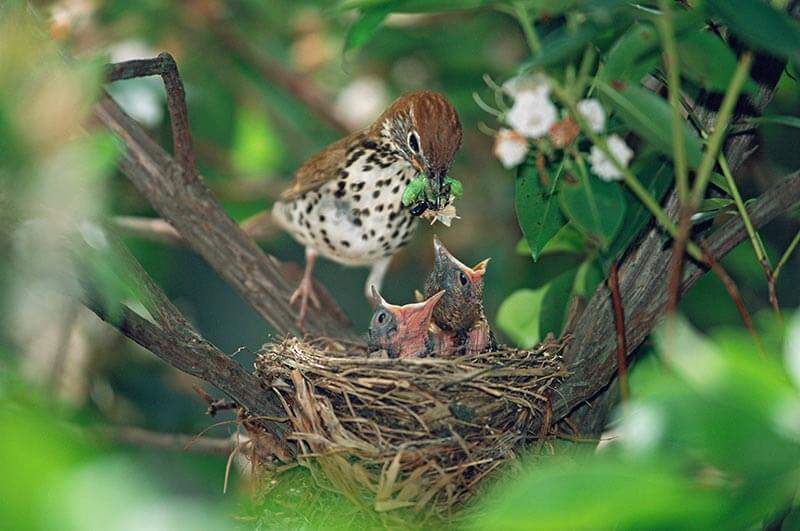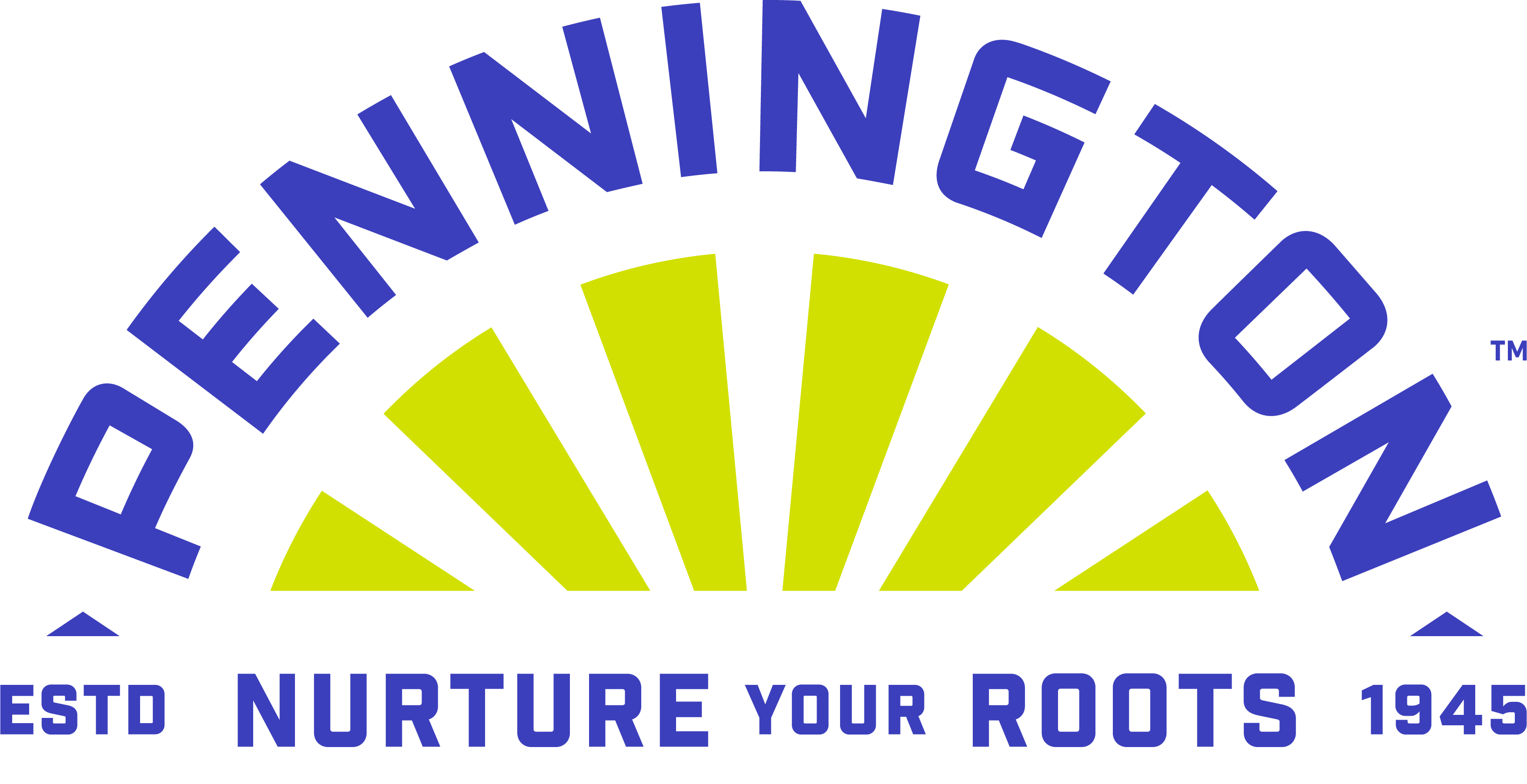Creating a Songbird Garden with Native Plants
Native plants and songbirds live in harmony, filling the countryside and gardens with color, movement and song. With thoughtful planning and simple care, you can create a native plant oasis that keeps songbirds singing and coming back for more.
Connecting Songbirds and Native Plants
Gardening with native plants fills songbird gardens with a stream of spring and summer blooms, along with fruit and bursts of seeds come fall. Native plants also attract an essential element for songbird success: native insects. During spring and summer, when natural fruit and seeds run low, songbirds turn to bugs for food. Tiny, chirping babies in a songbird's nest rely almost entirely on these high-protein snacks.

Native plants help attract food that baby songbirds need.
Strong bonds exist between native plants, noninvasive native insects and the songbirds that live nearby or migrate through the region. Some native insects rely solely on native plants for pollen and nectar, and some birds are very specific in choosing insect treats. Using native plants in your songbird garden provides the groundwork for a thriving backyard ecosystem.
Choosing Plants for Songbird Spaces
Songbird habits vary as much as their songs. Northern cardinals feed on or close to the ground, while goldfinches prefer feeding higher up. Some birds tuck nests in shrub branches, but bluebirds and others prefer birdhouse nesting boxes. Varying plant heights for songbird food and shelter creates a sanctuary where birds feel satisfied and safe. A birdbath or other water source makes your songbird spa complete.

Clean birdbaths provide songbirds with water for bathing and drinking.
Seed-producing native annuals, such as common sunflower, and a succession of perennial blooms support songbird activity from early spring on. Early flowering natives, such as airy Canada columbine or low-growing wild geranium, set the stage for later-blooming perennials such as wild indigo, purple coneflowers, black-eyed Susan's, and blazing stars and goldenrods, all of which draw insects and provide seeds, too. Using natives from your region solidifies their songbird draw.
Frame native flowers with fruit-producing shrubs for songbird food and hiding places. Natives such as winterberry and chokeberries bear fruit that persists into winter. Native evergreens, such as junipers, provide cedar waxwings and others with berry-filled feasts and winter cover. Group native plants by care requirements and simplify maintenance, too.
Feeding Plants for Songbird Benefits
Choosing plants that songbirds enjoy is only the beginning. Native plants thrive in their native soils, but competition for food and water in home gardens can be tough. Long-lasting, slow-release, natural-based fertilizers, such as Pennington Rejuvenate Plant Food All Purpose 4-4-4 and Alaska by Pennington Fish Fertilizer 5-1-1, provide native plants with a solid nutritional foundation. Keeping plants well-nourished and productive encourages more blooms, beauty and bird-attracting seeds.
Throughout the growing season, give your songbird garden a boost with specialized food to promote flowers and the many seeds that will follow. Plant foods such as Pennington Rejuvenate Plant Food Rose & Flower 4-6-3 or Alaska by Pennington MorBloom Fertilizer 0-10-10 provide the bloom- and seed-enhancing nutrients that native songbird plants need. Always leave spent flowers on the plant in songbird gardens. If you remove the flower heads or "deadhead" as you would in other perennial gardens, seed heads can't develop.
Keeping Songbirds in Mind Year-Round
Native gardens provide a smorgasbord of seasonal treats for migrating songbirds and year-round residents, but natural cycles in plant and insect life can leave songbirds hungry. Supplement nature's bounty with bird feeders for year-round songbird support. With high-energy, premium birdseed such as Pennington Ultra Songbird Blend, your favorite songbirds will enjoy a nutritious diet all year.

Songbirds seek out evergreens for shelter and food.
Gardening with native plants attracts and supports songbirds and fills your garden with life and song. With the help of Pennington products for your lawn and garden and wild birds, you can create beautiful native gardens that generations of songbirds can call home.
Alaska and Lilly Miller are registered trademarks of Central Garden & Pet Company. Pennington is a registered trademark of Pennington Seed, Inc.





